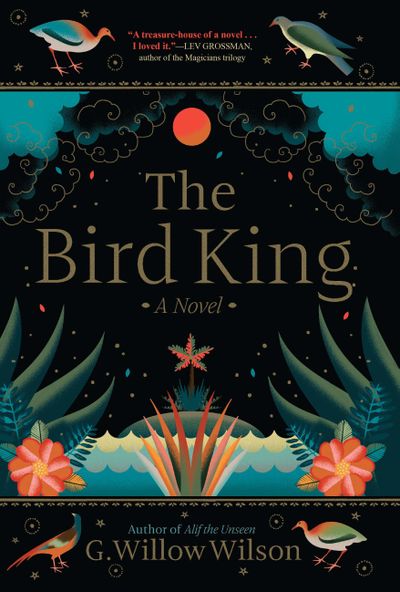Books: In ‘The Bird King,’ the Spanish inquisition sets a fantastical plot in motion

In “The Bird King,” a novel that begins with considerable promise, G. Willow Wilson whips up a head-spinning blend of realism, fantasy and history. The novel opens in the court of Granada (the last, weakened emirate of Muslim Spain), where a young woman in the sultan’s harem, Fatima, covertly visits a palace mapmaker, Hassan. To allay their boredom, the two friends play at completing the story of a literary classic, “The Conference of the Birds,” of which the palace owns only a partial manuscript.
Their friendship is complicated. A gay man, Hassan is tolerated because of his talents: His maps can bend space and make a tower or tunnel appear where none existed before. Hassan’s creations are a window for Fatima whose life is constrained by the suffocating boundaries of the harem. The sultan’s mother, Lady Aisha, humors her and allows her to read Plato, but when summoned, Fatima is obliged to appear in the sultan’s room. As a protagonist, Fatima ranges from self-assured (she wants “to be sultan,” she tells the sitting ruler) to brittle; even Hassan is wary of how judgmental she can be.
This life of petty harem politics and stolen pleasures is upended when a delegation sent by the newly formed Spanish monarchy arrives at the palace. The Spanish Inquisition is raging. One of its agents, Luz, is a seductively friendly widow, and Fatima innocently introduces her to Hassan. As soon as Luz realizes what Hassan can do, she wants the neck of that sorcerer. The sultan agrees to deliver Hassan, to save himself and the palace. Not so, Fatima. Furious when she discovers the deception, she becomes Hassan’s co-conspirator as the two attempt to escape.
So begins a torturous journey as they flee Castilian scouts through brutal wilderness that couldn’t be more different from Fatima’s former cosseted existence. Their guide for much of this journey is a jinn, Vikram, a Chewbacca-like creature who is as loyal to Fatima as he is fierce toward her enemies. While Fatima must stab a scout to save herself, Vikram prefers to eat him. Wilson’s writing is as smooth and beautiful as Fatima, though Vikram’s speeches sometimes drone on: “Your thoughts are naked enough. I understand what you are afraid of. Here is what we’ll do: I will drag this dead fellow away for the crows to play with.”
The book’s historical backdrop and its literary inspiration, “The Conference of the Birds,” provide a rich soil in which to plant a story. And indeed, life in the palace is evocatively sketched. But the chase grows tiresome, stretching on for so long that the reader may begin to wonder why Fatima and Hassan are so important to bag. The novel comes perilously close to reading like an action film, complete with the perfect villain, Luz, with a strange, terrifying splotch on her eye. “The speck squirmed, swimming against the white of Luz’s eye, a feeble horror, a worm culled from some other earth.”
Fatima and Hassan’s arduous, sometimes cartoonishly violent journey makes this an uneven book, though a deeply imaginative ending – set on an island that may have sprung from Hassan’s mind – redeems the travel-worn story. Wilson seems most at home when her characters have found theirs.